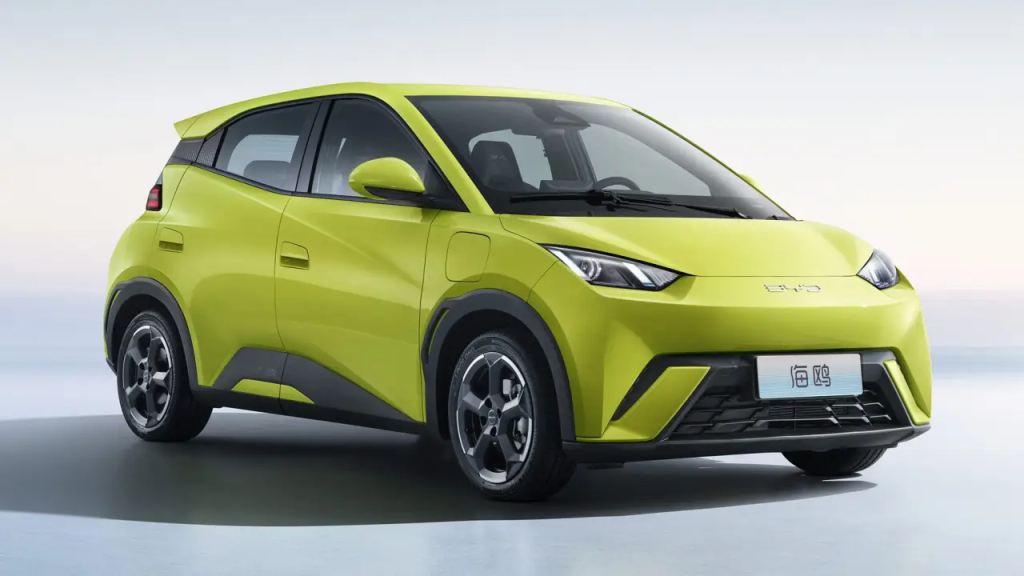With the global shift towards sustainable mobility gaining momentum, Brazil is fast emerging as a notable player in the electric vehicle (EV) arena. In 2022, the country witnessed a remarkable 66% increase in EV sales, according to Bloomberg Green. This surge is not just a fleeting trend but a testament to Brazil’s evolving automotive landscape. In this article, we’ll explore the key factors fueling Brazil’s electric vehicle boom, delve into the latest market trends, and offer insights on how consumers are adapting to this green revolution.
Government Incentives and Policies
Supportive Measures Accelerating Adoption
Brazil’s government has played a pivotal role in boosting the adoption of electric vehicles. The introduction of tax incentives, reduced import duties, and financial benefits has made EVs more accessible to the Brazilian public. In 2023, the government announced a significant reduction in the IPI (Tax on Industrialized Products) for electric vehicles, as reported by Reuters Mobility. This move not only lowers the upfront cost for consumers but also encourages automotive manufacturers to invest in the local market.
Environmental Regulations
Key environmental regulations have also set the stage for Brazil’s EV expansion. The National Policy on Climate Change aims to cut greenhouse gas emissions by 43% by 2030, providing an impetus for cleaner transportation options. This regulation mirrors global efforts seen in countries like Norway and the Netherlands, further aligning Brazil with international sustainability goals.
Infrastructure Developments
Charging Network Expansion
One of the most significant challenges to EV adoption globally is the availability of charging infrastructure. However, Brazil is making notable strides in this area. According to InsideEVs, the number of charging stations in Brazil has surged by 300% over the past two years. Major cities like São Paulo and Rio de Janeiro are leading the charge, with increased public and private investment in EV infrastructure.
- EV Charging Partnerships: Companies like Enel X and Siemens have partnered with local businesses to expand charging networks.
- Fast-Charging Technology: The introduction of fast-charging stations is reducing charging times significantly, making EVs more practical for Brazilian consumers.
Urban Mobility Innovation
The rise of electric scooters and bikes is complementing the EV ecosystem. These micro-mobility solutions are gaining popularity in urban areas, providing a cleaner and more efficient means of transportation for short distances.
Consumer Preferences and Market Trends
Shifting Consumer Attitudes
As awareness about climate change and sustainable practices grows, Brazilian consumers are increasingly inclined towards electric vehicles. A survey conducted by AutoCar in 2023 revealed that 68% of Brazilian car buyers consider environmental impact as a critical factor in their purchasing decision.
Brand Influence
International brands, including Tesla, BYD, and Volkswagen, are entering the Brazilian market, bringing a variety of electric models. Local manufacturers are also stepping up, with companies like CAOA Chery and Volkswagen Brazil launching new EVs that cater specifically to regional needs.
- Top-Selling Models: The Volkswagen ID.4 and BYD Tang EV have emerged as popular choices among Brazilian consumers.
- Innovation and Affordability: Local automakers are focusing on producing cost-effective, energy-efficient models to cater to a diverse consumer base.
Practical Tips for Brazilian EV Buyers
How to Charge an EV in Brazil
- Home Charging: Installing a home charging station is the most convenient option. Brands like Siemens offer affordable home chargers that are easy to install.
- Public Charging Stations: Utilize apps such as PlugShare to locate nearby charging stations. Many supermarkets and shopping malls in urban areas now offer complimentary charging facilities.
Where to Buy an Electric Vehicle
Brazilian consumers can explore a growing number of dealerships offering electric vehicles. It is advisable to compare prices online and visit showrooms to test drive potential options. Websites like AutoCar and Electrek provide comprehensive reviews and comparisons of the latest models.
What to Compare Before Buying
- Range and Battery Life: Ensure the EV’s range meets your daily commuting needs.
- Charging Time and Options: Compare charging speeds and available charging solutions.
- Cost of Ownership: Consider maintenance, insurance, and potential tax benefits.
Conclusion
Brazil’s electric vehicle boom is a testament to the country’s commitment to sustainable transportation. With supportive government policies, expanding infrastructure, and changing consumer preferences, the Brazilian EV market is poised for substantial growth. As the nation accelerates towards a greener future, the opportunities for both consumers and manufacturers are vast and promising.
Are you considering making the switch to an electric vehicle? Explore the growing array of options available in Brazil and join the movement towards a cleaner, more sustainable future. As the Brazilian market continues to evolve, staying informed and engaged with the latest trends will empower you to make environmentally conscious choices. The future of mobility in Brazil is electric, and it’s charging ahead at full speed.

